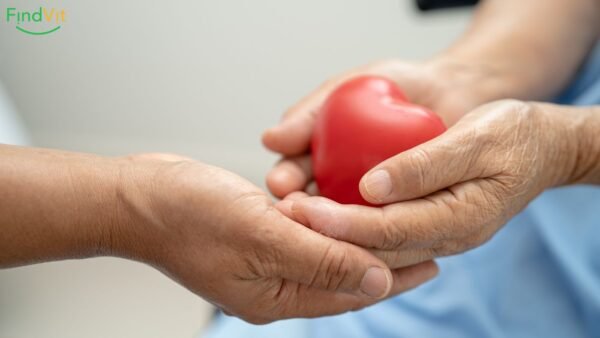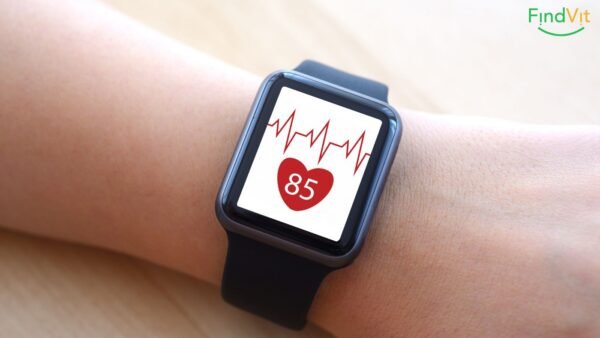
Kaip Sustiprinti Širdį: Kardiologų Patikrinti Metodai Be Vaistų
Kasmet pasaulyje nuo širdies ir kraujagyslių ligų miršta apie 17 milijonų žmonių, ir šios ligos išlieka pagrindinė lietuvių mirties priežastis. Tačiau gera žinia ta, kad…

For most people, the concept of coffee is associated with morning energy, meetings with friends or work breaks. But have you ever thought about how the component of coffee - caffeine - affects your health? In this article, we will discuss the effects of caffeine on the body, the dangers and potential risks associated with caffeine consumption, and how it can affect each of us.
Caffeine is a naturally occurring alkaloid substance found in coffee beans, tea leaves, guaraná fruit, cocoa beans, and other plants. Due to its stimulating effect on the human nervous system, caffeine is widely used as an additional source of energy. However, this substance can also have various consequences on our body, so it is worth understanding how caffeine affects health and when it should be consumed in moderation.

The effect of caffeine on the human body has been studied in detail for many years. The main principle of action of caffeine is related to adenosine, a substance that accumulates in our brain and causes a feeling of fatigue. Caffeine blocks the adenosine receptor site in nerve cells, which reduces the feeling of fatigue and increases alertness.
Also, caffeine works in another way. It stimulates the release of catecholamines such as adrenaline and norepinephrine, which cause an increase in heart rate, an increase in blood pressure, and the breakdown of glycogen into glucose. This can be considered a plus for athletes, as increased energy levels can improve athletic performance.
However, the effects of caffeine can vary from person to person, depending on genetics, age, gender, health status, caffeine tolerance, and other factors. Therefore, it is important to understand how caffeine affects your body and how it can affect your health.
Caffeine consumption can have positive consequences for your health:
Caffeine can also cause certain health problems, especially if consumed in large amounts:
As already mentioned, the effects of caffeine can vary from person to person. Caffeine sensitivity is determined by many factors, such as genetics, age, gender, health status, and tolerance to caffeine. Here are some examples of how caffeine sensitivity can vary between people:
It's worth noting that caffeine tolerance can also vary. If you consume large amounts of caffeine on a regular basis, your body may adapt to it and require more caffeine to feel as energized. However, it can also mean that withdrawal symptoms such as headaches, fatigue, and nervous system disturbances may occur when caffeine is stopped.

It is important to know how much caffeine is in your favorite cup of coffee. The amount of caffeine depends on many factors, such as the type of coffee, roasting time, amount and strength. On average, one 250 ml cup contains about 95 mg of caffeine.
However, keep in mind that caffeine content can vary greatly between different coffee types and manufacturers. For example, one 250 ml cup of espresso can contain between 47 mg and 75 mg of caffeine, and one 250 ml cup of tea can contain between 20 mg and 60 mg of caffeine.
It's also important to look out for caffeine levels in other products, such as energy drinks and chocolate products. These products may contain higher amounts of caffeine than coffee, so their consumption should also be limited.
As soon as we wake up, our body begins to produce the stress hormone cortisol, which refreshes the sleepy soul. However, it turns out that caffeine inhibits the production of cortisol, so starting the morning with a cup of coffee hardly gives us alertness. Worse, rhythmic coffee increases caffeine absorption, meaning you have to drink more and more coffee to feel the effects.
Better to drink that first cup an hour or a half after waking up, when cortisol production peaks and caffeine can do its magic. If you need a charge for work in the afternoon, then make a coffee at 2-3 pm, when the cortisol level drops again.
As with any substance, it's important to observe moderation and recommended limits for caffeine consumption. Health professionals recommend not to exceed 400 mg of caffeine per day, which is equivalent to about 4-5 cups of coffee. However, individual differences and sensitivities to caffeine should be taken into account, so some people may need less caffeine to feel good.
It is important not to consume caffeine before bed, as it can disrupt the quality of sleep and cause insomnia. It is also necessary to pay attention to the amount of caffeine consumed per day from all products, because too much caffeine can cause health problems.

If you don't want to consume caffeine or want to reduce the amount of caffeine in your diet, there are a number of alternatives that can help boost energy and improve concentration:
While caffeine is an extremely popular source of energy and focus, there are other ways to achieve a similar effect without the side effects of caffeine. First of all, it is important to ensure that our body receives enough nutrients and energy from a balanced diet rich in protein, carbohydrates, fat, vitamins and minerals.
One effective way to increase energy and concentration is regular physical activity, which improves blood circulation, burns calories, and improves mood and sleep quality. Physical activity can be varied, from short walks during work breaks to intense sports training, it is important to find a suitable and pleasant way to move.
Another way to improve energy and concentration without caffeine is to get adequate rest and sleep. Lack of sleep can have a negative impact on our attention, memory, mood and overall health, so it's important to make sure we're getting enough quality sleep every night.

Decaffeinated coffee is a great option for those who want to enjoy the taste of coffee but want to avoid the effects of caffeine. This type of coffee is made using special processes that remove most of the caffeine from the coffee beans. However, decaffeinated coffee is not completely decaffeinated - it may still contain a small amount of this substance, which is usually no more than 3% of the original caffeine content.
The benefits of decaffeinated coffee are obvious – you can enjoy the taste and tradition of coffee without the caffeine-induced energy spike, anxiety or insomnia. This is especially beneficial for those who are sensitive to caffeine, have certain health problems such as heart disease or high blood pressure, or simply want to reduce their caffeine intake.
However, decaffeinated coffee also has some disadvantages. One of them is the taste: decaffeinated coffee can taste very different from regular coffee because the decaffeination process can change the taste and aroma of the coffee beans. Also, decaffeinated coffee is usually more expensive than regular coffee because it is more complicated and expensive to produce. Finally, it should be mentioned that decaffeinated coffee is not completely without health effects, as it may still contain small amounts of caffeine and other biologically active substances.
A lot of the prevailing pros and cons debate is about caffeine. Below are answers to frequently asked questions about caffeine:
Caffeine begins to work within about 15-45 minutes after consumption and reaches maximum blood levels within 30-60 minutes. On average, caffeine stays in the body for 3-5 hours, but the half-life can vary from 1.5 to 9.5 hours. This means that after this time, half of the consumed dose of caffeine will still be in the body. The half-life may vary depending on genetic factors, age, gender, pregnancy status and other factors.
Caffeinated coffee can have various effects on blood vessels. Caffeine causes a short-term increase in blood pressure and heart rate. However, long-term coffee consumption may have a different effect: some studies show that regular coffee consumption may reduce the risk of heart disease. However, these effects may vary depending on individual sensitivity to caffeine, the dose taken, and other factors. It is important to consult your doctor before starting or changing your coffee consumption habits.
Caffeine is a stimulant that affects our nervous system. It helps maintain alertness and concentration, and can increase energy levels. However, excessive caffeine consumption can cause insomnia, anxiety, headaches, heart palpitations and other health problems. It is important to be aware that the effects of caffeine may vary depending on individual sensitivity to caffeine, the dose taken, and other factors.
The health effects of caffeine may vary depending on individual tolerance, amount consumed, and other factors. Although caffeine can help maintain alertness and improve focus, too much caffeine can cause insomnia, anxiety, headaches, and other side effects.
coffee (240 ml) contains about 95 mg of caffeine, and a cup of tea (240 ml) contains about 26 mg.
Yes, caffeine can be addictive. Continuous and high caffeine consumption can lead to tolerance, and sudden withdrawal can lead to withdrawal symptoms such as headache, fatigue and depression.
Please note that this information is general in nature and may not correspond to specific cases. It is always recommended to consult a health care specialist
It is important to understand the effects of caffeine on our health and to use coffee responsibly. Although caffeine can have positive effects in small amounts, consuming larger amounts can cause negative effects on the body. This is especially important for those who are sensitive to caffeine or have certain health problems.
Decaffeinated coffee is a great option for those who want to enjoy the taste of coffee without the effects of caffeine, but it is important to be aware of the disadvantages of this type of coffee, such as taste and cost. In addition, there are other ways to increase energy and concentration without caffeine, such as a balanced diet, physical activity, and adequate rest and sleep.
Finally, it is important to promote responsible coffee consumption and find our own personal balance between coffee consumption and health needs, so that we can enjoy this wonderful drink without negative consequences for our health.
Try other ways to boost your energy and focus without caffeine. And if you drink coffee, be careful and know your caffeine limits and sensitivities to this substance.

Kasmet pasaulyje nuo širdies ir kraujagyslių ligų miršta apie 17 milijonų žmonių, ir šios ligos išlieka pagrindinė lietuvių mirties priežastis. Tačiau gera žinia ta, kad…

Artificial intelligence in medicine has made impressive progress – it has already successfully passed medical licensing exams and can handle internal medicine cases. Even more impressive is that special…

The human heart beats an average of more than 2.5 billion times during a lifetime. This amazing organ works tirelessly to maintain a vital pulse rhythm, the rate of which (pulse rate)…

KIKI Health Zeolitas - Ceolitas, milteliai, 60 g

Trace Minerals Mega Magnesium 400 mg. Liquid with minerals, 118 ml.

KIKI Health Zeolitas - Ceolitas su aktyvuota anglimi, milteliai 60 g.

KIKI Health Zeolitas - Ceolitas, milteliai, 120 g.

SUPER OMEGA-3 - norvegiški žuvų taukai su Omega-3, didelė koncentracija, 100+30 kapsulių
| Cookie | Duration | Description |
|---|---|---|
| cookielawinfo-checkbox-advertisement | 1 year | Šį slapuką nustato GDPR Cookie Consent papildinys. Slapukas naudojamas išsaugoti vartotojo sutikimą dėl slapukų kategorijoje „Analitiniai“. |
| cookielawinfo-checkbox-analytics | 11 mėnesių | Šį slapuką nustato GDPR Cookie Consent papildinys. Slapukas naudojamas išsaugoti vartotojo sutikimą dėl slapukų kategorijoje „Analitiniai“. |
| cookielawinfo-checkbox-functional | 11 mėnesių | Slapukas nustatomas pagal GDPR slapukų sutikimą, kad būtų įrašytas vartotojo sutikimas dėl slapukų kategorijoje „Funkciniai“. |
| cookielawinfo-checkbox-necessary | 11 mėnesių | Šį slapuką nustato GDPR Cookie Consent papildinys. Slapukai naudojami saugoti vartotojo sutikimą dėl slapukų kategorijoje „Būtini“. |
| cookielawinfo-checkbox-others | 11 mėnesių | Šį slapuką nustato GDPR Cookie Consent papildinys. Slapukai naudojami saugoti vartotojo sutikimą dėl slapukų kategorijoje „Kiti“. |
| cookielawinfo-checkbox-performance | 11 mėnesių | Šį slapuką nustato GDPR Cookie Consent papildinys. Slapukai naudojami saugoti vartotojo sutikimą dėl slapukų kategorijoje „Vykdymas“. |
| elementor | never | Šį slapuką naudoja svetainės „WordPress“ tema. Tai leidžia svetainės savininkui realiuoju laiku įdiegti arba keisti svetainės turinį. |
| viewed_cookie_policy | 11 mėnesių | Slapuką nustato GDPR Cookie Consent įskiepis ir jis naudojamas norint išsaugoti, ar vartotojas sutiko, kad būtų naudojami slapukai, ar ne. Jame nesaugomi jokie asmens duomenys. |
| Cookie | Duration | Description |
|---|---|---|
| _ga | 2 metai | _ga slapukas, įdiegtas Google Analytics, apskaičiuoja lankytojų, seansų ir kampanijos duomenis, taip pat seka svetainės naudojimą svetainės analizės ataskaitoje. Slapukas išsaugo informaciją anonimiškai ir priskiria atsitiktinai sugeneruotą skaičių unikaliems lankytojams atpažinti. |
| _ga_JWS80V051Z | 2 metai | Šį slapuką įdiegė Google Analytics. |
| omnisendSessionID | 30 minučių | Šį slapuką nustato teikėjas Omnisend. Šis slapukas naudojamas unikaliam seanso ID nustatyti. Slapukas statistiniais tikslais renka informaciją apie lankytojų elgesį svetainėje. |
| soundestID | sesijos metu | Šį slapuką nustato teikėjas Omnisend. Šis slapukas naudojamas norint nustatyti, ar lankytojas svetainėje yra naujas, ar lankytojas lankėsi anksčiau. |
| Cookie | Duration | Description |
|---|---|---|
| omnisendAnonymousID | 1 year | Šį slapuką nustato teikėjas Omnisend. Šis slapukas naudojamas išsaugoti vartotojo veiksmą svetainėje su unikaliu ID. Slapukas užšifruoja lankytojo duomenis, kad būtų apsaugoti naudotojo duomenys. |
| soundest-views | sesijos metu | Aprašymas negalimas. |
| woocommerce_recently_viewed | sesijos metu | Aprašymas nepasiekiamas. |
